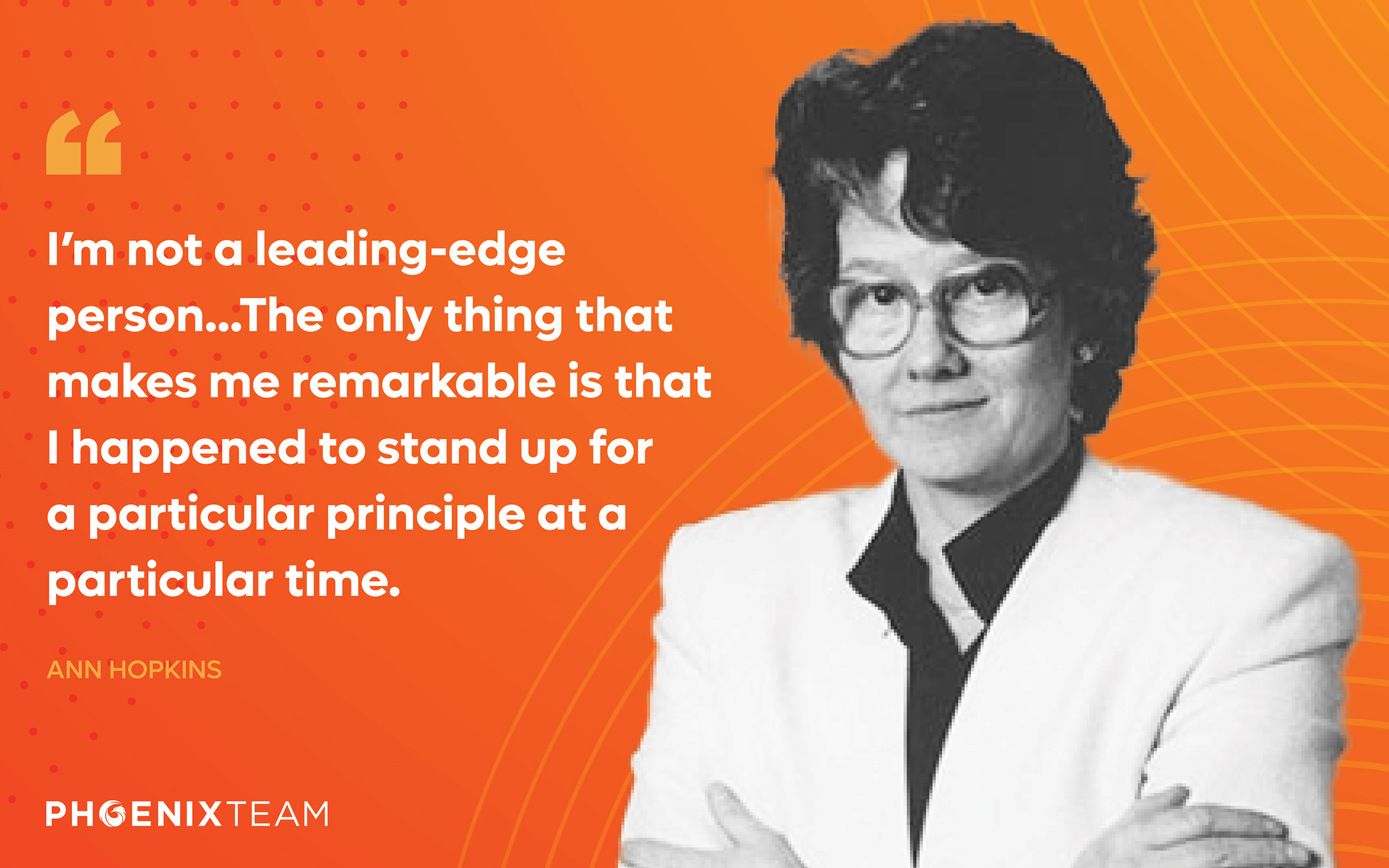Breaking Barriers: The Extraordinary Woman Who Redefined Workplace Equality
Ann Hopkins, a celebrated and deeply respected woman ahead of her time, made history when she shattered the glass ceiling during the ‘Mad Men’ era when sexism prevailed, men drank scotch and smoked at their desks, and women had “no place in a man’s world.” She bravely battled gender discrimination at Price Waterhouse, now PwC , reshaping the workplace landscape for women and all minorities. This epic, years-long struggle began with commonplace injustices at the time that would be unthinkable in today’s workplace but ultimately paved the way for a more inclusive and equitable future.
Ann was the definition of a modern woman, managing a successful career and a growing family, marrying her husband in 1974, keeping her name like a boss, and having three children before divorcing in the late 1980s. She joined PwC in 1978 after prior roles with IBM and accounting firm Touche Ross. By her own admission, Ann could be abrasive, relentless, and impatient in the office. She was also one of the best young consultants in PwC’s Washington branch in 1982, according to managers who put her up for a partnership that year. Hopkins billed more hours than any of her counterparts — all of whom were men — and helped secure one of the largest government contracts in the accounting firm’s history. Her successes were legendary, and she did all of this without conforming to her gender role.
Despite earning her place in the boardroom, her partnership with the firm was denied. Twice. First in 1982 and again in 1983. Leaders at PwC criticized her as “macho,” “difficult,” and “aggressive.” One male supervisor told Hopkins that, to have any chance of becoming a partner, she needed to “walk more femininely, talk more femininely, dress more femininely, wear makeup, have her hair styled, and wear jewelry.”
Today, she would be a social media icon, based on a passage from her 1996 memoir, “So Ordered: Making Partner the Hard Way,” in which she described herself as someone equally devoted to her career and embracing her true self. She liked to smoke and drink beer, sometimes used salty language, and was unapologetically tough-minded. In 1974, when she landed an interview at Touche Ross, she wore a crisply pressed suit and Ferragamo pumps and rode to the meeting on a Yamaha motorcycle. Ann was a role model far ahead of her time!
Hopkins led the change for equality by suing PwC for dismissing her partnership application based solely on gender. She won two federal court cases, in 1985 and 1987, but those decisions did not put her in the partner seat. Ann knew her worth and the value she delivered. She was not one to sit back, accept the “W” but not truly effectuate the change necessary to move the needle in a fair and equitable direction. So, in 1989, she took her case to the Supreme Court. In a 6-3 decision, the court sided with Ann under Title VII of the 1964 Civil Rights Act, which states that an employer must demonstrate that hiring decisions are based on merit, not discriminatory notions, including those related to gender. The Supreme Court established that discrimination based on sex stereotyping is unlawful, setting precedence and significantly contributing to the path women are still paving for equality in the workplace.
But Ann was not done. Winning is half the battle—retribution is the ultimate victory.
In 1990, following the favorable Supreme Court ruling, a lower court ordered PwC to offer Hopkins the denied partnership and pay her $370,000 in back wages (equivalent to about $732,000 today). Even though many of her colleagues who had criticized her were no longer in the Washington office, PwC made it abundantly clear that she was unwanted. In an ultimate show of strength, Ann seized the opportunity to use her exceptional skills at the top-notch firm and claimed her partnership.
She worked for PwC Waterhouse, achieving great success, until her retirement in 2002. Ann Hopkins was reluctant to call herself a civil rights heroine.
In an interview after the decision, Hopkins said of her case: “The explanation I got about why I didn’t make partner didn’t make sense to me. … I filed suit not because of the money, but because I had been given an irrational explanation for a bad business decision.” She later told The Boston Globe, “I’m not a leading-edge person. The only thing that makes me remarkable is that I happened to stand up for a particular principle at a particular time. And enough with this talk about feminism and glass ceilings…Lord knows if I put a crack in it.”
Fred Tombar, who worked closely with Ann Hopkins, said that her sometimes harsh demeanor masked traits like generosity and loyalty. “Her expectations were through the roof, and if you didn’t meet them, she let you know in clear and unambiguous terms,” Mr. Tombar said. “That intimidated some people. But many of us took it as an opportunity to learn and grow. She had a direct and immeasurable impact on me.”
Ann’s daughter, Tela Mathias, said her mother had been proud to have spent so much of her career drilling excellence into young consultants at the company. “I would describe her as a reluctant civil rights landmark, a Texan, a constant gardener, and an excellent baker of pies,” Mathias said. “She didn’t even like pie. But she’d bring six. That was her way of showing love.”
Ann Hopkins’ career was the definition of full circle; it had all the makings of a sensational Pulitzer novel with Ann as the lead superhero. While Ann passed away in 2018, her legacy is eternal. Her passion for authenticity, equality, and non-conformity lives on in PhoenixTeam, as her iron-clad principles and fierce work ethic were the foundation on which Phoenix was built. Price Waterhouse vs Hopkins was a groundbreaking case, setting a precedent for future generations that is still enforced today. The 1989 Supreme Court decision has been cited in cases contending that the ban on discrimination also bars discrimination based on sexual orientation.
The Obama administration also cited Hopkins’ case to declare that Title VII protects against discrimination based on gender identity. Congress later cited the case, making the simple but momentous announcement that sex, race, religion, and national origin are not relevant to the selection, evaluation, or compensation of employees. Ann’s case continues to be cited in cases fighting workplace discrimination today, making a significant impact in favor of women and all individuals discriminated against based on gender stereotyping, including the LGBTQ+ community.
Ann’s passing in 2018 may have marked the end of her life, but her legacy continues to fight for justice and equality for all.
Ann Hopkins 1943 – 2018. For an in-depth view into Ann’s journey and the extraordinary person that she was, read her 1996 memoir in which she shares more about her life, career, and priceless wisdom. So Ordered: Making Partner the Hard Way by Ann Hopkins.


















